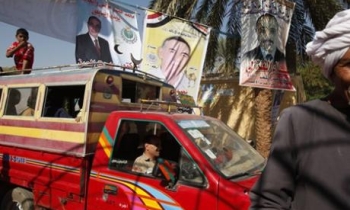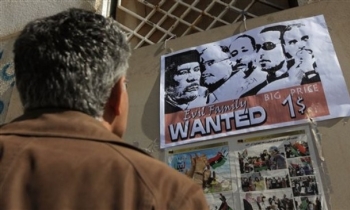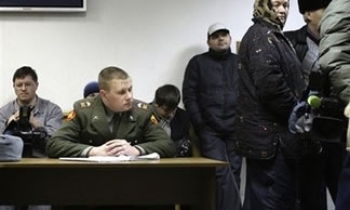He was an uncompromising journalist, he demanded press freedom in an east African country, and he was imprisoned for six years without any trial. Till today, Dawit Isaak awaits his fate in one of the 314 prison centres scattered throughout Eritrea.
An Eritrean with Swedish citizenship, Isaak was arrested in September 2001 in Asmara along with 10 other journalists, including newspaper owners and editors, and 11 political dissidents accused of being Ethiopian traitors and spies. The arrests were result of the government crackdown in 2001 that saw the closure of all independent media outlets and the suspension of civil and political liberties in Eritrea.
As the second war with Ethiopia was ending in 2001, the independent press relayed the calls for democratisation coming from 15 senior ruling party members know as the “group of 15.†The government responded on September 18, 2001 by cracking down on the “group of 15†and suspending all of the privately-owned news media. This marked the beginning of unwarranted arrests of media executives and editors one by one. For several weeks, the political police waged a manhunt in the capital of Africa’s youngest country.
Hundreds of government opponents have been held in unknown locations ever since then. They include at least 10 journalists. Apart from Dawit Isaak, Yusuf Mohamed Ali, the editor of Tsigenay; Mattewos Habteab, the editor of Meqaleh, and his deputy, Dawit Habtemichael; Medhanie Haile, the deputy editor of Keste Debena, and Temesgen Gebreyesus, a member of Keste Debena’s board; Emanuel Asrat, the editor of Zemen; poet and playwright Fessehaye Yohannes, from Setit newspaper; Said Abdulkader, the editor of Admas; and freelance photographer Seyoum Tsehaye are detained without any trials.
Eritrean law stipulates that an individual cannot be detained without charges for more than 30 days. According to the information available, four of these journalists have already died. European union has already called Eritrea to either put the prisoners on trial or let them go.
Isaak had come to Sweden in 1987 as a refugee from Eritrea’s bloody war for independence. He lived in Lerum and became a Swedish citizen in 1992. When Eritrea gained independence in 1993, he returned to his native country and eventually became a part-owner of the country’s first independent newspaper, Setit, where initially, he worked as a reporter.
In 1998, the conflict with Ethiopia flared up again, leading to a devastating border war. Isaak returned to Sweden. His wife and three children followed in April 2000. They settled down in Gothenburg. A year later, Isaak came back to Eritrea where he was arrested in 2001
He was first held at a police station in Asmara before being transferred in March 2002 to the Halibet hospital where he was treated for the effects of abuse suffered in his cell. All attempts by Swedish authorities to visit him have failed as the Asmara government has always refused to allow it.
During these 6 years, Issak was released in between on November 19, 2005 due to efforts of Leif Obrink, the leader of a Swedish organisation and Swedish Ambassador Bengt Sparre. His release had come as respite the reprisal of press freedom in world’s biggest jailer of journalists. The happiness of reprieve soon vanished when two days later, he was imprisoned again.
Information Minister Ali Abdu had quoted the excuse that the release was temporary leave for medical tests and indicated clearly that Issak would have to return to prison within a few days. However, Issak was unaware that his release was only temporary, as he was planning to return to Sweden.
Several parliamentarians and media faternity have created a support group for the reporter in Sweden. In March 2007, Sweden's national press club awarded Isaak its Freedom of Expression and Press Prize to recognise his fight for independent journalism. His wife and children accepted the award worth 10,000 kronor ($1,400) and a diploma on his behalf.
Once a week, protest letters on Issak’s behalf are turned over to the Eritrean embassy in Stockholm by Swedish press club. But support group for Issak doesn’t seem to be too happy with the efforts put by government for his release.
Although, Sweden continues to negotiate with the Eritrean government, the Press Club criticises that the foreign ministry for not doing enough for Isaak. There have been repeated appeals to Prime Minister Fredrik Reinfeldt to put pressure Eritrea for liberating Isaak. They have denounced Stockholm's "diplomacy of silence" on behalf of Isaak which had produced no results. There has been suggestion to Reinfeldt to push EU to take Isaak's case into consideration in negotiations on aid to Eritrea and freeze the aid incase of incooporation.
Although, conditions of prison for Issak have improved a bit. He is now allowed medicines and vitamins and can receive visitors. But the ultimate questions on his detainment without any specified reasons and no trials in six years have failed to find an answer so far.









